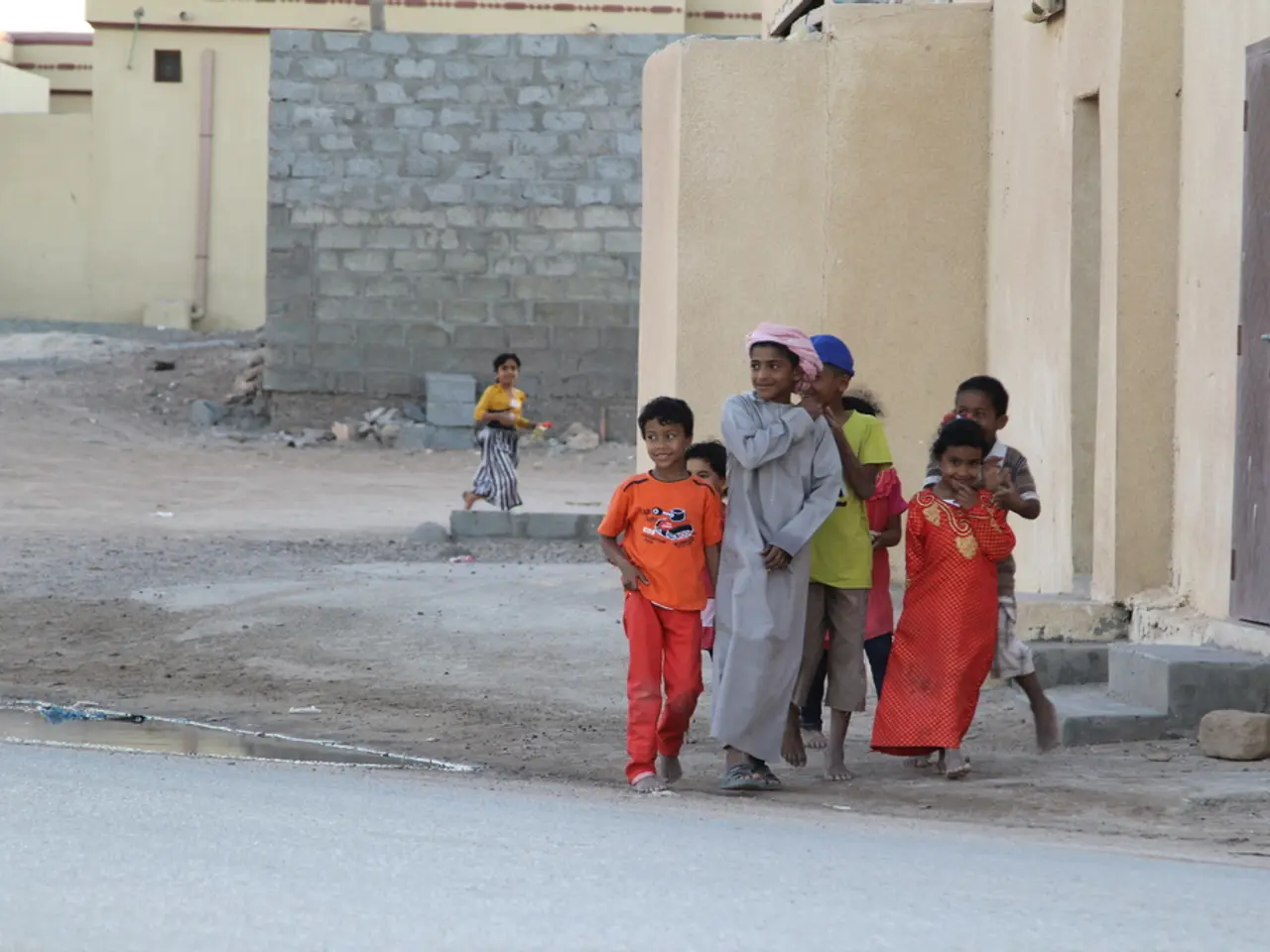Strategies to Nurture Self-Directed Learning in Children at a Young Age
In the realm of education and parenting, the focus on raising independent learners has gained significant attention. This approach, which emphasizes choice, responsibility, problem-solving, and real-life engagement, fosters not just academic achievement but also prepares children for a successful, self-reliant life.
Key strategies to raise independent learners include offering choices within limits, engaging kids in real-life tasks, sharing responsibilities, promoting problem-solving, supporting decision-making, encouraging caring for others, and developing communication and literacy skills.
Offering choices within limits, such as allowing a child to select between two learning activities, nurtures decision-making skills and self-awareness. Engaging kids in real-life tasks, like sweeping, washing dishes, or watering plants, helps children develop fine motor skills, sequencing, and responsibility, while building confidence by making them feel like active contributors to their environments.
Sharing responsibilities from a young age, by assigning small, age-appropriate tasks, fosters accountability and a sense of accomplishment. Promoting problem-solving encourages children to approach challenges with a solution-oriented mindset rather than complaints. Supporting decision-making helps children practice making decisions about their daily lives, like choosing clothes or weekend activities, nurturing responsibility and accountability.
Encouraging caring for others, whether it's through caring for family, friends, or pets, fosters social responsibility and emotional intelligence, important traits for collaborative success. Developing communication and literacy skills through activities such as joint reading, storytelling, singing, and word games not only builds early literacy but also boosts children's confidence and engagement in learning.
These practices contribute significantly to children's success in several ways. They build confidence and autonomy, enhancing cognitive and social skills, preparing children for real-life challenges, and supporting academic engagement.
Building confidence and autonomy allows children to view themselves as capable and responsible individuals, supporting motivation and perseverance in academic and life challenges. Enhancing cognitive and social skills equips children with essential thinking, sequencing, and interpersonal skills foundational for lifelong learning and relationships.
Preparing children for real-life challenges equips them with skills to manage daily life independently, making transitions to school and the wider world smoother. Supporting academic engagement improves focus and academic outcomes by fostering better organizational skills and ownership of learning.
Educational approaches like the Montessori method exemplify these principles by focusing on hands-on learning, child autonomy, and real-world skills development. Montessori classrooms create environments that nurture independence and treat children as capable initiators of their own learning, further reinforcing success in school and beyond.
In conclusion, raising independent learners through choice, responsibility, problem-solving, and real-life engagement not only fosters their academic achievement but also prepares them for a successful, self-reliant life. By implementing these strategies, parents and educators can empower children to own their learning journey, embrace challenges, and grow into confident, responsible individuals.
- Positive parenting strategies, such as offering choices within limits, promoting problem-solving, and supporting decision-making, help children build self-awareness, responsibility, and a solution-oriented mindset, contributing to their personal growth and educational success.
- Encouraging respect and caring for others, whether it's through family, friends, or pets, and developing communication and literacy skills through activities like joint reading, storytelling, and word games, foster social responsibility, emotional intelligence, and confidence, key ingredients for collaboration and lifelong learning.
- The principles of offering choices, promoting responsibility, and emphasizing self-development through problem-solving are exemplified by educational methods like the Montessori approach, creating environments that nurture independence, child autonomy, and real-world skills development, priming children for academic and life success.




